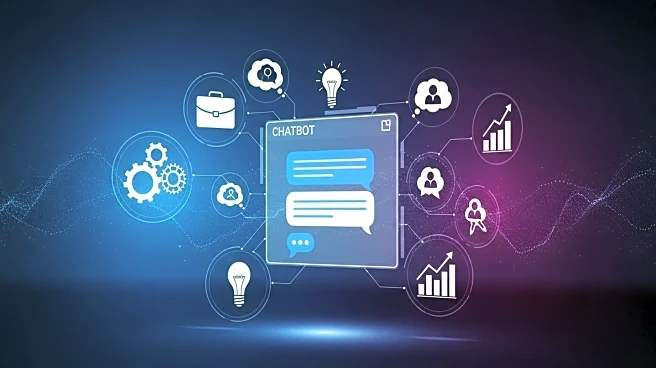What's Happening?
AI-driven chatbots like ChatGPT are increasingly being used by individuals seeking career advice. Users are turning to these platforms for guidance on career mapping, exploring new fields, and identifying necessary skills and certifications. According to Anthropic's analysis of 4.5 million conversations, nearly 20% of career-focused interactions involve creating personalized career maps. While AI offers a broad range of information, it lacks the emotional support and personalized insights that human mentors provide. Users like Priscilla Abii and Jeanie Thompson have found AI helpful for exploring career options, but experts like Ruth Gotian caution against relying solely on AI for mentorship, emphasizing the importance of human connection.
Why It's Important?
The rise of AI chatbots in career planning reflects a shift in how individuals approach professional development. AI tools offer accessible and comprehensive information, potentially democratizing career advice. However, this trend raises concerns about the diminishing role of human mentorship, which provides emotional support and personalized guidance. The reliance on AI could impact workplace dynamics, as employees may miss out on valuable interpersonal interactions and networking opportunities. This shift could also influence how organizations structure mentorship programs and prioritize in-person training.
What's Next?
As AI technology continues to evolve, it is expected to offer more refined and personalized career advice. However, the challenge remains in balancing AI-driven insights with human mentorship. Organizations may need to reassess their mentorship strategies to ensure employees receive both technological and human support. The ongoing development of AI platforms will likely lead to more sophisticated tools, prompting discussions on ethical considerations and the role of AI in professional settings.
Beyond the Headlines
The integration of AI in career advice highlights broader ethical and cultural implications. The potential replacement of human interaction with AI raises questions about the value of empathy and trust in professional relationships. As AI becomes more prevalent, society must consider how to preserve human connection and ensure technology complements rather than replaces interpersonal interactions. This development also prompts discussions on the long-term impact of AI on workplace culture and employee well-being.










